Gaza Health Ministry reports 210 new deaths; Israel warns of war expansion against Hezbollah
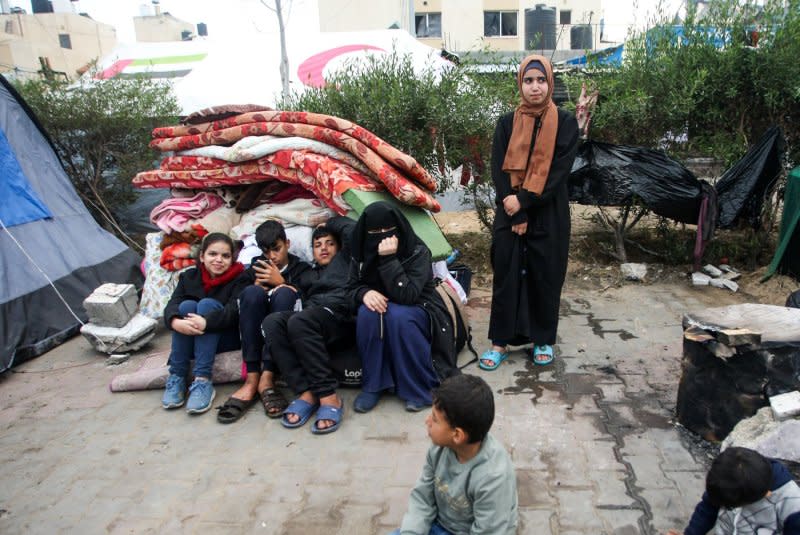
Dec. 28 (UPI) -- The Palestinian Ministry of Health said Thursday that hundreds more people have been killed amid Israel's war with Hamas as Israeli officials warned of the possibility of expanding the fight against Hezbollah in Lebanon.
In its latest update, the Palestinian Health Ministry said that 210 people had been killed in the past 24 hours bringing the total death toll 21,320 since the start of the war following an Oct. 7 attack against Israel.
It added that 360 people were also injured in the past day, bringing the total of people hurt in the war to 55,603.
The Ministry of Health in Gaza also urged the United Nations to "take effective and urgent steps to ensure the protection of the Nasser Medical Complex and hospitals in southern Gaza, protecting medical staff, the wounded, the sick, and thousands of displaced people."
"The humanitarian and health conditions of the displaced have reached catastrophic levels beyond description, and more than 1.9 million displaced people lack water, food and medicine," the ministry said.
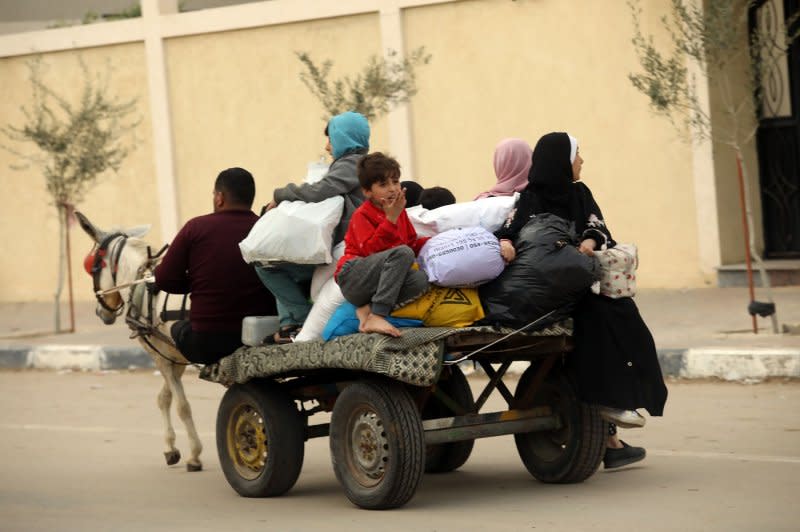
UNICEF also called on Thursday for all parties in the war to abide by international human rights law to protect children and declared the killing and maiming of children to be unacceptable.
"83 children have been killed in the past 12 weeks -- more than double the number of children killed in all of 2022, amid increased military and law enforcement operations," UNICEF said Thursday in a statement. "More than 576 have been injured and others have reportedly been detained."
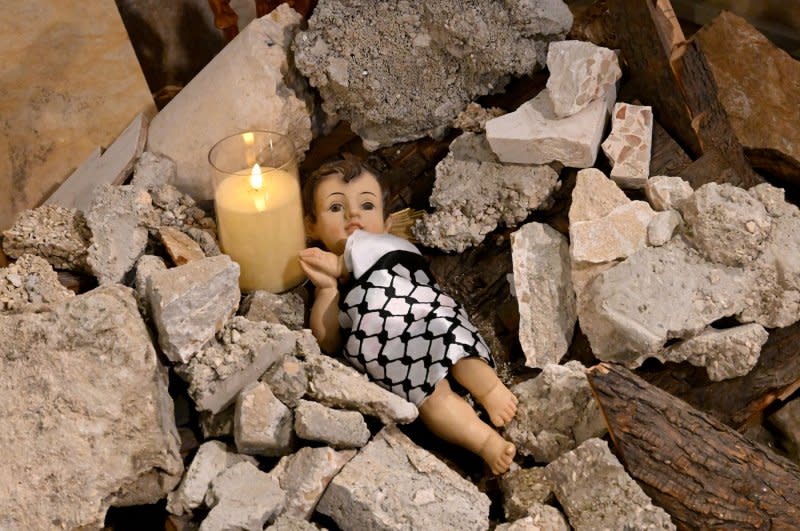
UNICEF said the number of children killed in the West Bank, including East Jerusalem, is reaching unprecedented levels, marking the deadliest year on record.
Children in the West Bank, UNICEF said, have been experiencing "grinding violence" for many years, yet the violence has dramatically increased there "since the horrific attacks of Oct. 7."
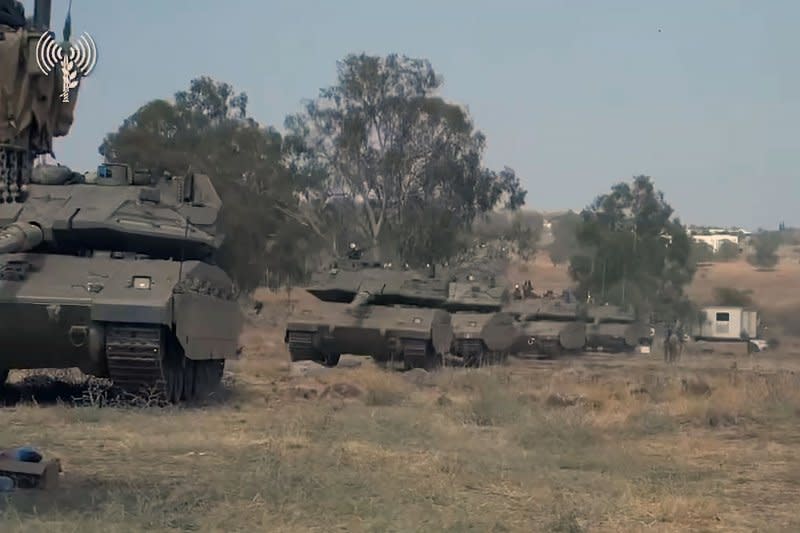
"Grave violations against children, in particular killing and maiming, are unacceptable. UNICEF urges all parties to abide by their obligations under international human rights law and to protect children from conflict-related violence and protect their most basic right simply to be alive," UNICEF said.
Meanwhile, a senior member of Israel's war cabinet threatened military action to take out Hezbollah in southern Lebanon unless the Lebanese government and the international community take action to stop the militant group launching attacks into northern Israel.
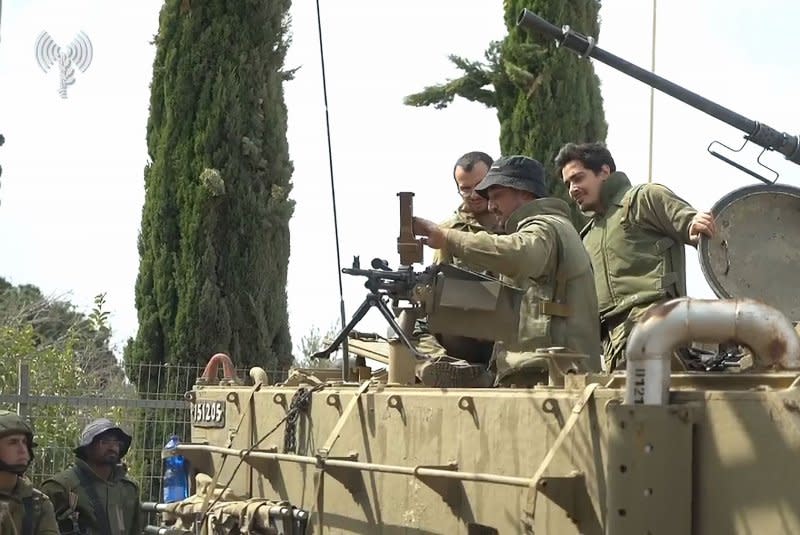
The prospect of an escalation of Israel's war on Hamas with the opening up of a second front against the Iran-backed militants was raised by Benny Gantz at a news conference Wednesday.
The deteriorating security situation on Israel's northern border after months of rocket fire by Hezbollah units meant the opportunity for a peaceful way out was fast evaporating, said Gantz.
"The situation on Israel's northern border demands change," the former Israel Defense Forces chief of staff and former defense minister said.
"The stopwatch for a diplomatic solution is running out. If the world and the Lebanese government don't act in order to prevent the firing on Israel's northern residents and to distance Hezbollah from the border, the IDF will do it."
Gantz elaborated by saying that the coming phases of the war would be "deep, forceful, and surprising" with the military campaign continuing to widen to "more foci or fronts" as necessary.
As the Gaza war intensifies, the IDF is signaling it is also poised to act against Hezbollah when the order comes with its most senior commander saying on a visit to northern command headquarters in Safed on Wednesday that forces there were "at a very high level of readiness."
"Today we approved a variety of plans for the future, and we need to be ready for an offensive, if necessary," said Chief of Staff Lt. Gen. Herzi Halevi, speaking about the situation on Israel's northern border with Lebanon.
However, he stressed that safely returning the tens of thousands of residents of communities near the border with Lebanon who have been evacuated since Oct. 7 took priority, an objective that would take time.
"So far, the campaign here has been managed correctly and meticulously, and this is how it should continue. We will not return the residents without security and a sense of security," Halevi said.
Regional tensions, which have been steadily on the rise as the Israel-Hamas war has drawn in Hezbollah and Houthi rebels in Yemen, also Iran-backed, were further heightened by a Christmas Day Israeli airstrike on Damascus that killed Sardar Seyed Razi Mousavi, a high-ranking member of Iran's Islamic Revolutionary Guards Corps.


